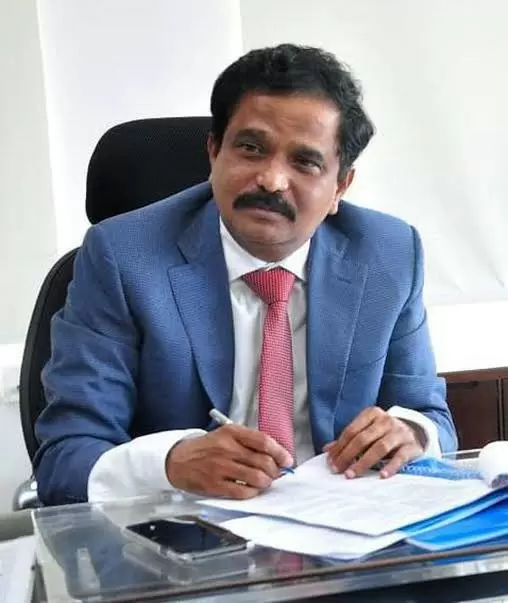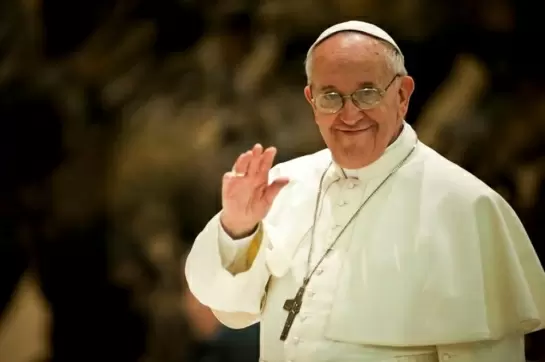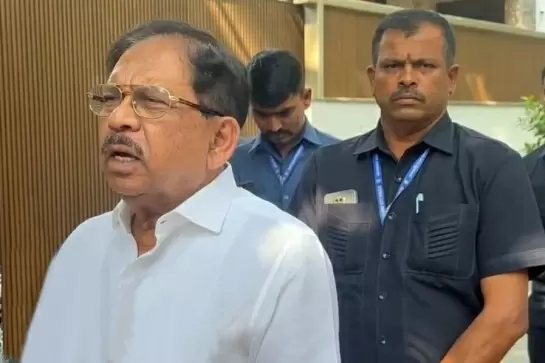Pollution needs systematic, scientific solution: Javadekar
21-November-2019
The debate on pollution, particularly in the Delhi-NCR area, in the Rajya Sabha on Thursday witnessed heated and emotional appeals with members demanding either to declare an environmental emergency or take the issue up as a national emergency.
The House also witnessed bitter war of words between members of the Bharatiya Janata Party and the Aam Aadmi Party with Environment Minister Prakash Javadekar, in the end, telling members that a frenzied approach to the problem will never work and there is need for systematic and scientific solution.
Javadekar told the House: "We need to look upon some issue rising above party level and have to prepare common minimum agenda."
Noting that different factors - chiefly burning of biomass, dust from construction, vehicle pollutants and factory pollutants - are responsible for air pollution in different cities and each needs to be dealt differently, he said: "We need to identify the source of each city and accordingly work upon it."
The Centre has launched National Action for Clean Air and have identified 122 cities where the air pollution is above the limit, Javadekar said. "Collective action is needed to tackle air pollution and the government is committed to check the menace," he said, adding that India needs to prepare an oxygen bank by creating urban forestry and school nurseries. "Public participation is needed to reduce the air pollution in the country."
The minister said that Delhi has witnessed overall improvement in air quality successively since 2016. He said the number of good to moderate days in term of air quality has increased to 175 in 2019 as compared to 158 in 2018 and poor to severe days reduced to 148 as compared to 165 last year.
He informed that in 2019-20, the total stubble burning incidents in the states of Uttar Pradesh, Punjab and Haryana were reduced by 19 per cent as compared to last year.
Jaya Bachchan of the Samajwadi Party demanded an environment emergency be declared in the country.
In a sarcastic remark on the strength during the debate, she said that there was a small number of members present in the House to discuss such a serious matter. "Delhi is not the only polluted city. Varanasi and Kanpur among some of the cities facing the menace... I request the government to declare environmental and those responsible be penalised," she said.
BJP's Vijay Goel accused the Delhi government of being inactive in the matter, saying in the past five years, it had just given out masks. "Fifty lakh masks have been distributed but no one is seen wearing them. There are so many pollutants in water that we are being forced to drink it from the bottles," he added.
This invited a sharp reaction from AAP's Sanjay Singh, who said it was because of the efforts of the Delhi government that pollution had been curbed. "56,000 machines have been given to farmers to avoid stubble burning. But, in the Supreme Court, they have quoted a different number. Where did all these machines go?"
Amid debate, Goel sought to show masks, mineral water bottles, air purifier pictures and Delhi government advertisements, but Deputy Chairman Harivansh Narayan Singh denied permission, saying: "You cannot display all these objects in the House".
Participating in the discussion, Leader of Opposition Ghulam Nabi Azad appealed to the government to convene the meeting of all the Chief Ministers and prepare a time-bound action plan.
Many members asserted said that blaming famers for the pollution is unacceptable and all the government mechanisms need to work together to resolve the issue.
In reply, Javadekar said that a comprehensive air plan for Delhi and NCR region has been developed and a graded response action plan for a different level of pollution has been notified.
He stressed that mass movement should also include the pollution caused by traffic, both noise and air. He said that individuals have to fight the menace together by taking some basic steps such as using environment-friendly fuel and avoiding honking unnecessarily.
The minister also noted that pollution in the Indo-Gangetic plain is higher than in other places because there is more moisture and dust in these regions.
He asserted that a number of initiatives have been taken. "We are now migrating to BS-VI. This will reduce the vehicular pollution by 80 per cent. The BS-VI migration has already happened for fuel in Delhi. But, vehicles will also be BS-VI compliant from April, 2020. Then, the Eastern and the Western Peripheral Expressways have been operationalized. In Delhi, there used to 60,000 trucks every day, polluting the Delhi city, though they had no work in Delhi. But, now, they do not enter into Delhi because these two bypass expressways are ready and are being used. So, that has reduced the pollution to a great extent," he said.
He also pointed to the promotion of public transport system. "You are now seeing lakhs of e-rickshaws," he said.
About industrial emissions, he said that stringent emission norms are in place for coal-based thermal power plants. "The Badarpur Thermal Power Station has been closed. Pet coke and furnace oil have been banned," he said.
In order to prevent stubble burning, a new Central Sector Scheme on 'Promotion of Agricultural Mechanization for in-situ Management of Crop Residue in the States of Punjab, Haryana, Uttar Pradesh and NCT of Delhi' for the period from 2018-19 to 2019-20 is being implemented by the Ministry of Agriculture and Farmers' Welfare. "About Rs.1,150.80 crore has been sanctioned. More than 50,000 machines have already been given," the minister said.IANS
Khushbu Sundar’s X Account Hacked; Actress Seeks Urgent Help
ED Raids Bengaluru Dog Breeder Who Claimed to Own Rs 50 Crore Wolf-Dog
Raj Thackeray Slams Hindi Imposition in Maharashtra Schools, Warns of Statewide Protests
That Sassy Thing Raises ₹6 Crore to Disrupt Women’s Sexual Wellness Space
Suspended Kerala IAS Officer Prasanth Raises Promotion Demand During Hearing








